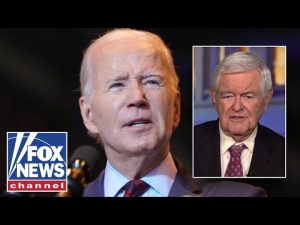In the thrilling world of international diplomacy, the looming question is whether Donald Trump, the former president with a supposed Midas touch for deals, can bring peace between Ukraine and Russia. Many are eager to see if he can pull off a miracle similar to his work on the Abraham Accords. One of the main issues here is the exclusion of Ukrainian President Zelenskyy from these conversations. European allies are visibly uncomfortable, probably wondering how one conducts peace talks about Ukraine without Ukraine. It seems like inviting everyone to a birthday party but forgetting the birthday boy.
Putin’s resistance to change remains legendary. Both he and Zelenskyy refuse to budge on territorial issues. Zelenskyy has made it clear that seeking territory is illegal, while Putin, sticking to his playbook, isn’t keen on Ukraine joining NATO. Trump, however, seems more open to the idea of Ukraine’s accession to NATO, yet insists there won’t be American boots on the ground. One has to wonder what kind of peace will emerge from mixing these conflicting ingredients, especially with Putin’s reputation for unpredictability and selective hearing.
For those who remember, Trump’s past diplomatic escapades have often ended with hands being shaken, treaties being signed, and some world leaders walking away with perplexed expressions. His track record includes the Abraham Accords, and he even garnered a Nobel Peace Prize nomination, presumably for his creative approach to international politics. Despite the fluidity of “peace” under Putin’s reign, who remains more belligerent than a cat in a room full of rocking chairs, Trump’s supporters insist he’s uniquely qualified to bring resolution, if not total peace, at least an armistice more stable than a rocking chair.
Believers in Trump’s negotiation prowess might compare this moment to the Korean War resolution, which, let’s admit, ended up being a bit more north and south than initially intended. If history is any guide, peace, like anything in life, sometimes means accepting compromises. Particularly the kind where everyone leaves the table slightly disgruntled, but still willing to attend the next meeting.
As the world waits and watches, there will be comparisons to Reagan’s peace endeavors. Back then, critics were skeptical of any positive outcome, and yet, the Berlin Wall eventually came tumbling down. If Trump can persuade Putin to sit face-to-face, wouldn’t that be a victory in itself? After all, bringing Putin to the table without turning it into a WWE match could be considered a diplomatic coup. Even if it’s merely a first step, remember, Rome wasn’t built in a day, nor were Reagan’s peace achievements. So, grab your popcorn because, in the realm of geopolitics, stranger things have certainly happened.







